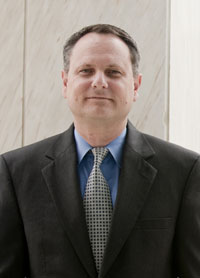What do you recommend that students do to prepare to go back to school?
We hope that they would be able to develop their plan for how to best use the next two years, in order to get the most out of their MBA. When students first get here, I ask them “what’s your story going to be?” In other words, what are you going to tell a future employer in terms of, here’s what I did before I got my MBA, here’s what I did while getting my MBA, here’s my experience – this is my story.
We want students to be in a position to be able to answer those questions, knowing that the responses might change once they get here, but to have some trajectory in mind from day one.
At the University of Illinois, students can take advantage of a flexible curriculum, where they can, with their electives, take classes even outside the college of business. Because of that flexibility, they have to figure out how they can take advantage of the resources of the university. So I suggest that they familiarize themselves with what they can take advantage of, through, in our case, the University of Illinois.
For example, if you think you want to do marketing, which is a very traditional concentration – maybe you want to get into the mind of a consumer – so you can take a psychology class that might be helpful for you to really get into the behavior and mind of a consumer.
What about students who don’t necessarily have a background in business?
All students are going to be exposed to a core curriculum for the first year, so if they’re coming from a background where they don’t have any business experience at all – if they were an English major, as an example – if they have an opportunity to be exposed to a basic business acumen, that can be helpful. We would want them to be able to make sure that they prepare themselves to work in teams – because they will do that significantly while they’re here in the MBA program.
And they can also start to do some research on who our alumni are, so they can start thinking about how they can leverage that network.
Some students might be feeling some anxiety about being in a classroom setting, especially if they’ve been in a workplace for a couple of years.
We do eight-week modules here, and during the eight-week modules they can take five classes at a time. And if you’ve been out of school for a while, then yes, that can be a lot to get your arms around. I don’t think you can do much to prepare for that. The expectation is that they will learn as much from their classmates as they will from the teachers themselves. Their experiences are going to be very different from their undergraduate experiences, which were probably that the instructor was the main content provider. In the MBA, it’s very much a hybrid, where during a class discussion they’re hearing about other experiences, and the teamwork is going to enrich their learning beyond what their instructor is going to provide them. So students should understand that this is a very different experience from what their undergraduate experience might have been, and that they need to, from day one, acknowledge that they have to rely on their teammates to get through it.
Is there anything that students can do to prepare for this new mindset?
We actually have a series of activities over the summer to bring admitted students together, so that they can start to, on a more informal basis, begin to create those relationships that they’ll have to rely upon when they get here. They’re going to have to, from time to time, give up control over an assignment, so it’s critical for them to start to get to know each other in those contexts.
We do a pretty rigorous orientation, we have them do challenge courses to build their team skills, and we also do activities to allow them to think about their job search from day one. They’re meeting with companies the third day, even before classes start. We have Facebook pages and those types of things; we have them connected to alumni, and current students that they can keep in contact with over the summer to get their questions addressed in terms of how the program really works.
We try to at least set the expectation as to what these folks are going to be able to do, and what they’re going to be experiencing. The summer events, the orientation, these are really aimed at creating relationships outside the classroom early on so they can take advantage of those, especially as it relates to the academic work, which can be very rigorous.
